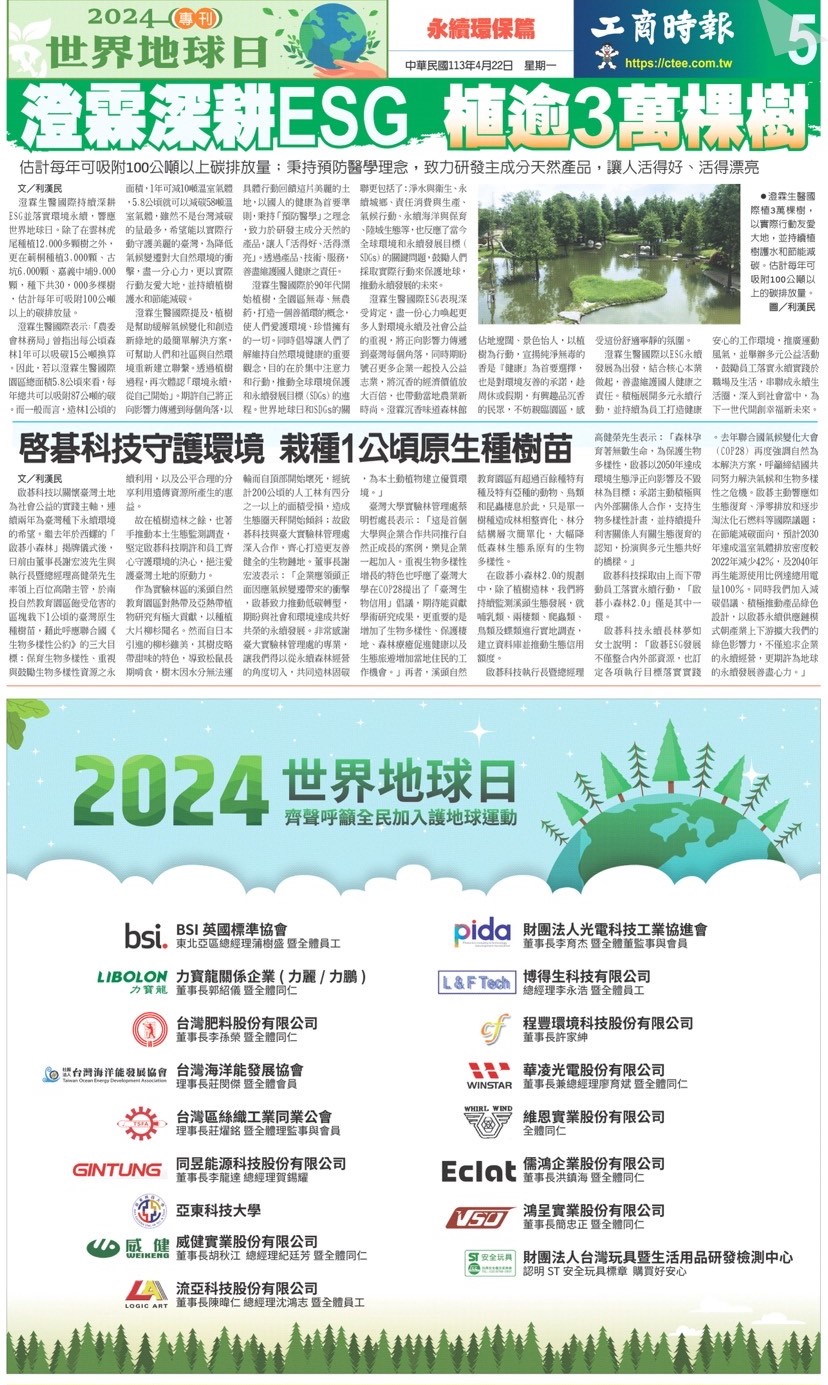2024 Earth Day─ Commercial Times "2024 Corporate Earth-Loving Signing Event"
2024.04.18
2024 marks the 54th Earth Day, themed "Planet vs. Plastics." It calls for global collaboration to eradicate plastic pollution, aiming to build a plastic-free future for upcoming generations. This aligns with the impending Global Plastics Treaty, expected to be finalized by the end of 2024, hailed as the most significant international environmental agreement since the Paris Agreement, strengthening previously slogan-based plastic reduction efforts.
Amid the growing awareness of plastic reduction, many businesses are choosing to replace single-use plastic packaging and disposable tableware with biodegradable alternatives like PLA. However, in 2018, the European Parliament passed resolutions stating that biodegradable plastics cannot effectively solve plastic pollution; the real solution lies in discontinuing the use of single-use plastics.
At VSO, our corporate sustainability philosophy focuses on reducing energy and resource consumption, actively embracing eco-friendly materials and technologies, and promoting recycling. Through continuous innovation, collaboration, and improvement, we aim for green and sustainable development while providing our customers with outstanding products and services. This year, we actively participated in the "2024 Corporate Earth-Loving Signing Event" hosted by the Commercial Times, joining numerous other businesses in supporting this significant occasion. We stress that businesses should prioritize communities and workers in their transition process, adopting fair and inclusive approaches to achieve low-carbon, zero-waste, and sustainable operations.
【Biodegradable Plastics】
PLA, or Polylactic acid, is a commonly used biodegradable plastic in Taiwan, primarily derived from carbon compounds such as corn and potatoes through fermentation. It's widely employed in making disposable tableware, packaging boxes, and fresh food trays, labeled with recycling code number 7 and identified as PLA.
While PLA and other biodegradable plastics may seem environmentally friendly and capable of decomposing in natural environments, they require specific temperature and humidity conditions for microbial degradation, typically achieved in industrial composting facilities. Consequently, when PLA products end up in oceans, forests, or rivers, they are as resistant to decomposition as conventional plastics. Therefore, the MOENV has decreed that public venues should not provide PLA materials such as cups, bowls, plates, and food containers, starting in August 2023.
【More Information】

